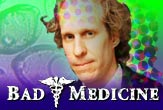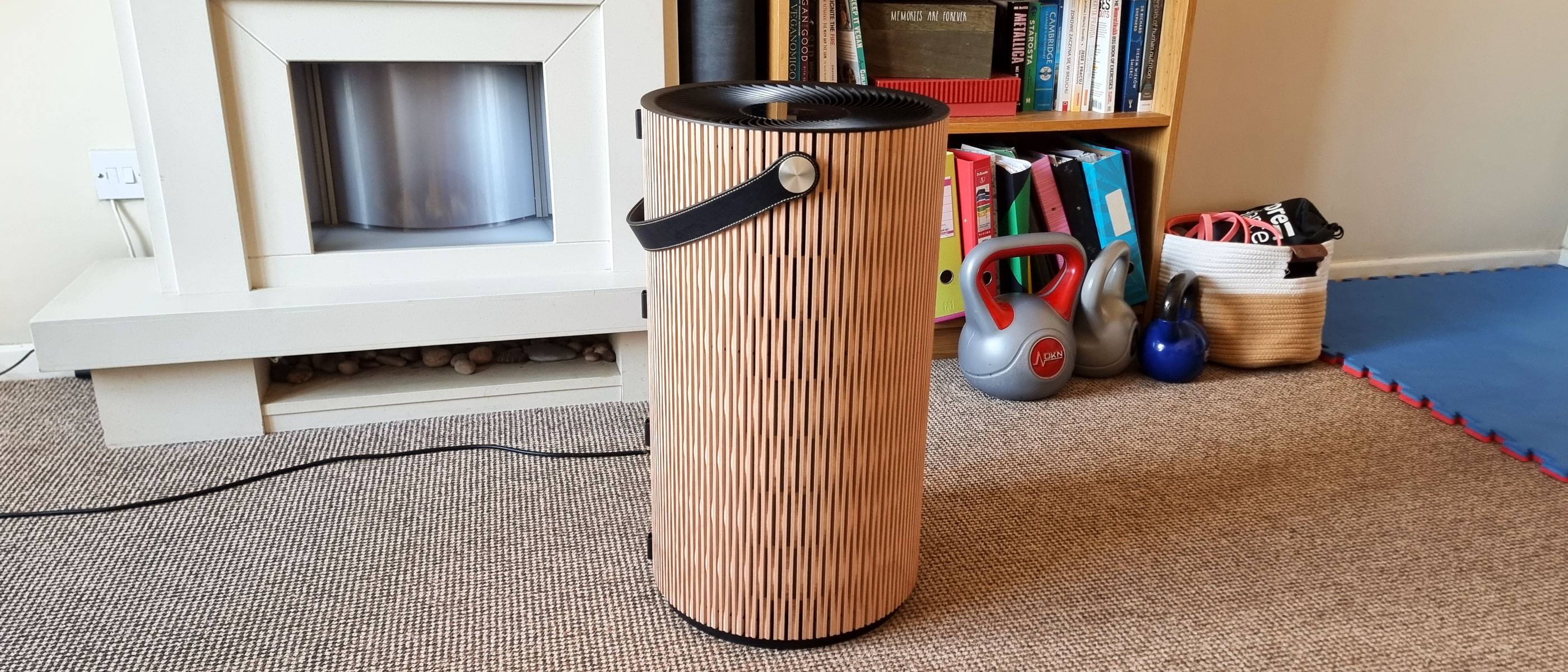Homeopathy and the Folly of Watery Memory

Get the world’s most fascinating discoveries delivered straight to your inbox.
You are now subscribed
Your newsletter sign-up was successful
Want to add more newsletters?

Delivered Daily
Daily Newsletter
Sign up for the latest discoveries, groundbreaking research and fascinating breakthroughs that impact you and the wider world direct to your inbox.

Once a week
Life's Little Mysteries
Feed your curiosity with an exclusive mystery every week, solved with science and delivered direct to your inbox before it's seen anywhere else.

Once a week
How It Works
Sign up to our free science & technology newsletter for your weekly fix of fascinating articles, quick quizzes, amazing images, and more

Delivered daily
Space.com Newsletter
Breaking space news, the latest updates on rocket launches, skywatching events and more!

Once a month
Watch This Space
Sign up to our monthly entertainment newsletter to keep up with all our coverage of the latest sci-fi and space movies, tv shows, games and books.

Once a week
Night Sky This Week
Discover this week's must-see night sky events, moon phases, and stunning astrophotos. Sign up for our skywatching newsletter and explore the universe with us!
Join the club
Get full access to premium articles, exclusive features and a growing list of member rewards.
The tide washes away memories, according to an ancient proverb. Bucking timeless wisdom, scientists last week said they have evidence that water maintains its own memory.
This bizarre assertion, beyond known laws of physics, supports a bizarre healing tradition called homeopathy, which is beyond laws of reason. The scientists claim that water can remember a substance mixed in it after the substance has been removed and, as a result, the water becomes therapeutic.
The claim comes as a full-court press in the current issue of the journal Homeopathy, dedicated to the "water memory" topic with nine articles on theory and laboratory experiments, as if to prove to the other 99.99 percent of the scientific community that there's something to this stuff after all.
The general medical consensus is that there's nothing to this stuff and that homeopathy entails nothing more than the placebo effect.
The delusion of dilution
Homeopathic medicine—crumb-size pills sold in little vials—comes across looking like real medicine, for it is often sold next to over-the-counter drugs in both upscale and mainstream pharmacies, from Whole Foods to CVS, with different medicines offered for common ailments such as flu or headaches.
Homeopathy, a 200-year-old tradition from Germany, is based on two principles: "like cures like" and "law of infinitesimals," stating that medicine becomes stronger as it is diluted. Miniscule amounts of, say, poison ivy can cure diaper rash; snake venom can cure joint stiffness.
Get the world’s most fascinating discoveries delivered straight to your inbox.
There's nothing intrinsically wrong with "like cures like." Vaccines employ a similar mechanism. The dilution idea is delusional, though.
Homeopathy was developed before knowledge of molecules. The "medicine" is added to water and is mixed and diluted over and over again. A typical homeopathic treatment might be diluted to 30X, which means one molecule of medicine in a million trillion trillion (10^30) molecules of water.
At this dilution level you'd need to drink 8,000 gallons of water to get one molecule of the medicine. Other homeopathic treatments are 30C, which is 100^30. There's not enough water in the solar system to accommodate this dilution.
Plan B, water must remember
Confronted with pesky laws of chemistry, homeopaths turned to skirting laws of physics. The water, they reason, must remember the shape of medicine and somehow etch this onto a pill.
In the current issue of Homeopathy, scientists present evidence not so much of water memory but of the potential for water to have memory. The authors claim that the act of diluting the medicine—vigorously shaking and cutting the mixture numerous times—imparts something to the water.
Exactly what it imparts is unclear. Perhaps silica from the vial leaches into the water, one paper suggests. Another author discusses the possibility of quantum entanglement, a poorly understood property of quantum physics in which two particles, placed at great distances from each other, can remain in synch as if side by side. (The alternative medicine maxim: When in doubt, go quantum.)
But does it work?
Coming up with bold theories to explain how homeopathy could work would be useful if homeopathy did work. Systematic reviews performed for the National Center for Complementary and Alternative Medicine have found no evidence that homeopathy is an effective treatment for anything.
Similarly, a major homeopathy analysis published in The Lancet in 2005 found that the better a homeopathy study is performed, the more it is apparent that positive health outcomes are due to the placebo effect.
Dr. José Teixeira of France's National Center for Scientific Research (CNRS), a physicist who wrote the sole critical article about water memory for Homeopathy, told LiveScience the "characteristic times of liquid water are well known in physics." Water molecules can change orientation around another molecule, he said, but "the longest life of any structure observed in liquid water is of the order of a picosecond."
Teixeira said research on water memory is performed by earnest homeopaths hoping to find a biological mechanism for a healing art they the honestly believe in. Homeopaths are far from quacks. Many, particularly those based in Europe, complete three-year degrees or post-graduate medical training.
Homeopathy's therapeutic benefits could be attributed to the care homeopaths dedicate to their patients. Homeopaths routinely spend an hour with their patients, compared to ten-minute visit most of us receive at a mainstream physician's office. Mainstream doctors have much to learn from homeopaths.
As for this pursuit of how the ghost of a toxin can heal the body, perhaps in another generation's time we will no longer have memory of it.
Christopher Wanjek is the author of the books “Bad Medicine” and “Food At Work.” Got a question about Bad Medicine? Email Wanjek. If it’s really bad, he just might answer it in a future column. Bad Medicine appears each Tuesday on LiveScience.
- VIDEO: Flu Fighter
- Top 10 Mysterious Diseases
- The Most Polular Myths in Science

Christopher Wanjek is a Live Science contributor and a health and science writer. He is the author of three science books: Spacefarers (2020), Food at Work (2005) and Bad Medicine (2003). His "Food at Work" book and project, concerning workers' health, safety and productivity, was commissioned by the U.N.'s International Labor Organization. For Live Science, Christopher covers public health, nutrition and biology, and he has written extensively for The Washington Post and Sky & Telescope among others, as well as for the NASA Goddard Space Flight Center, where he was a senior writer. Christopher holds a Master of Health degree from Harvard School of Public Health and a degree in journalism from Temple University.
 Live Science Plus
Live Science Plus










